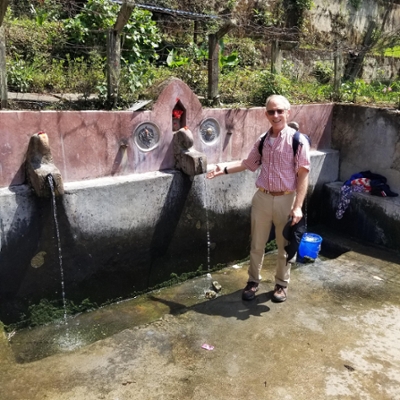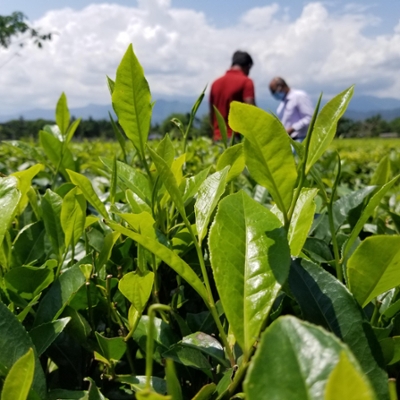Sabbatical Experience in Nepal
Richard Rosecrance
Enriching his cultural and educational experiences, Richard Rosecrance traveled to Nepal in South Asia during his sabbatical trip in spring 2022. During his time there, he expanded his knowledge of agriculture, climate change, and economics.
Through previous travel in the 1980s when Rosecrance was in the Peace Corps, he decided to return to Nepal to compare the similarities and differences of the time he went years ago. He was amazed with how technologically advanced the towns and villages have become.
“The last 30 years have rapidly changed—more than the last 3,000 years. I was shocked that roads were developed, hotels were built, and a local farmers market provided fresh fruits and vegetables. Everyone has Wi-Fi and a cell phone now,” Rosecrance said.

With all of this technological and economic advancement, he also noticed the loss of some traditions and an increase in pollution. There is more “hustle,” he said, to rush to the next thing. This area is moving away from the barter society of trading goods or services with no money involved.
During this sabbatical time, Rosecrance also wrote two academic papers that will be going through the publishing process through the end of the year. The first paper discussed the research of determining water use in different types of olive trees. The second paper was about canopy management in an olive oil production manual.
When comparing agriculture in California and Nepal, Rosecrance noticed some of the same struggles, like labor, climate change, and irrigation. With labor, the workforce in agriculture is made up of an older generation because younger adults are moving away to cities for employment. Climate change is affecting the weather and erosion of the soil. Irrigation was never a priority in Nepal but with hotter weather, it is a necessity to keep the crops alive.

Rosecrance saw all of these issues when he was visiting a tea plantation in Darjeeling that was facing all three challenges. This consisted of about 5,000 acres of tea where everything was picked by hand by older labor workers. The soil was eroding, and irrigation systems were being installed.
“Even in rural India, climate change and agricultural issues are present just like in California. It was interesting to be able to see those similarities across the globe,” Rosecrance said. “The world is changing right in front of our eyes.”
At the Bengal Tea Association, Rosecrance had the opportunity to present his research about how to manage canopies and crop production. This presentation focused on pest control and irrigation.
India is facing some major challenges with temperatures heating up and supporting a large population. Rosecrance saw the dedication people had toward trying to emphasize the importance of agriculture to keep the industry thriving.
Rosecrance plans to incorporate all of these experiences in his current and future classes at Chico State. He enjoys sharing his story to his students and encourage studying abroad and visiting other countries to learn more about the agricultural industry.
